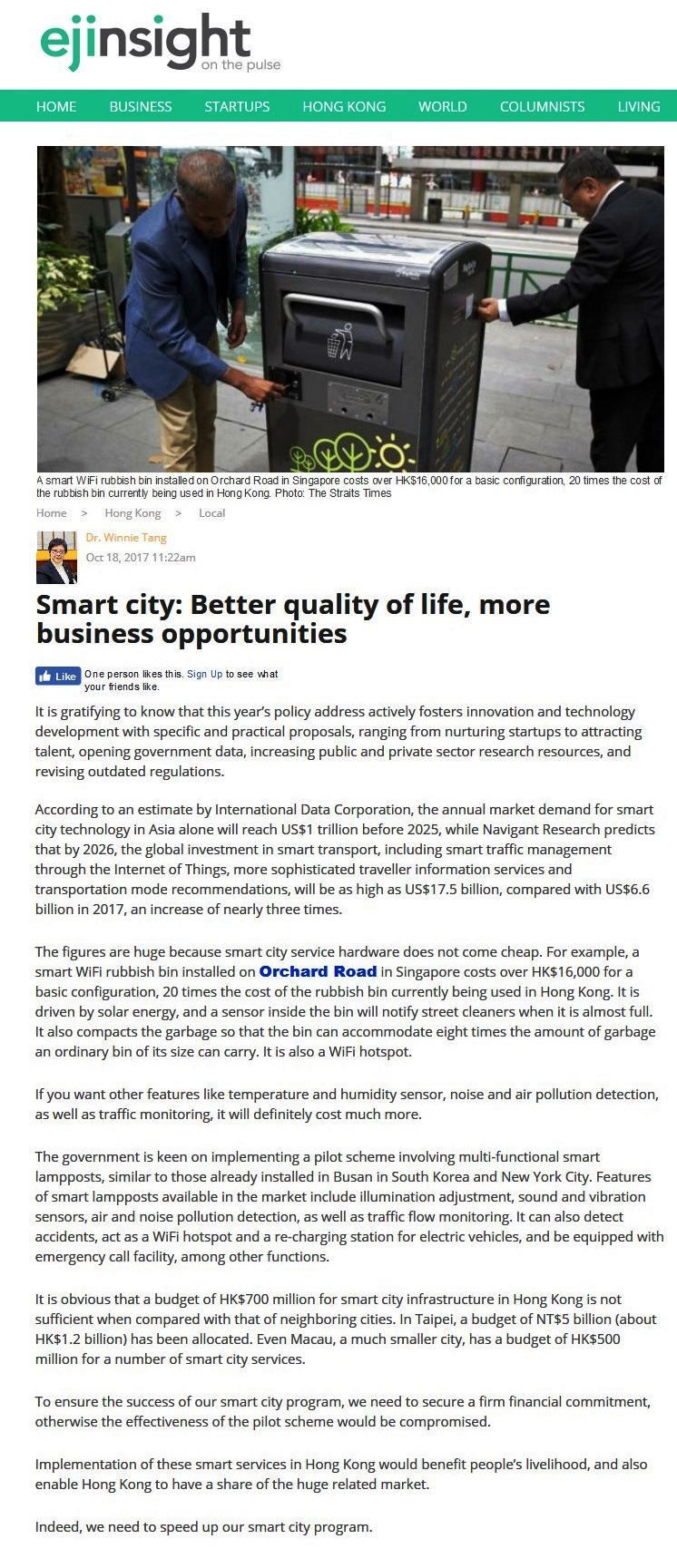網上版請按此

Smart city: Better quality of life, more business opportunities
It is gratifying to know that this year's policy address actively fosters innovation and technology development with specific and practical proposals, ranging from nurturing startups to attracting talent, opening government data, increasing public and private sector research resources, and revising outdated regulations.
According to an estimate by International Data Corporation, the annual market demand for smart city technology in Asia alone will reach US$1 trillion before 2025, while Navigant Research predicts that by 2026, the global investment in smart transport, including smart traffic management through the Internet of Things, more sophisticated traveller information services and transportation mode recommendations, will be as high as US$17.5 billion, compared with US$6.6 billion in 2017, an increase of nearly three times.
The figures are huge because smart city service hardware does not come cheap. For example, a smart WiFi rubbish bin installed on Orchard Road in Singapore costs over HK$16,000 for a basic configuration, 20 times the cost of the rubbish bin currently being used in Hong Kong. It is driven by solar energy, and a sensor inside the bin will notify street cleaners when it is almost full. It also compacts the garbage so that the bin can accommodate eight times the amount of garbage an ordinary bin of its size can carry. It is also a WiFi hotspot.
If you want other features like temperature and humidity sensor, noise and air pollution detection, as well as traffic monitoring, it will definitely cost much more.
The government is keen on implementing a pilot scheme involving multi-functional smart lampposts, similar to those already installed in Busan in South Korea and New York City. Features of smart lampposts available in the market include illumination adjustment, sound and vibration sensors, air and noise pollution detection, as well as traffic flow monitoring. It can also detect accidents, act as a WiFi hotspot and a re-charging station for electric vehicles, and be equipped with emergency call facility, among other functions.
It is obvious that a budget of HK$700 million for smart city infrastructure in Hong Kong is not sufficient when compared with that of neighboring cities. In Taipei, a budget of NT$5 billion (about HK$1.2 billion) has been allocated. Even Macau, a much smaller city, has a budget of HK$500 million for a number of smart city services.
To ensure the success of our smart city program, we need to secure a firm financial commitment, otherwise the effectiveness of the pilot scheme would be compromised.
Implementation of these smart services in Hong Kong would benefit people's livelihood, and also enable Hong Kong to have a share of the huge related market.
Indeed, we need to speed up our smart city program.
Dr. Winnie Tang
Honorary Professor, Department of Computer Science, The University of Hong Kong